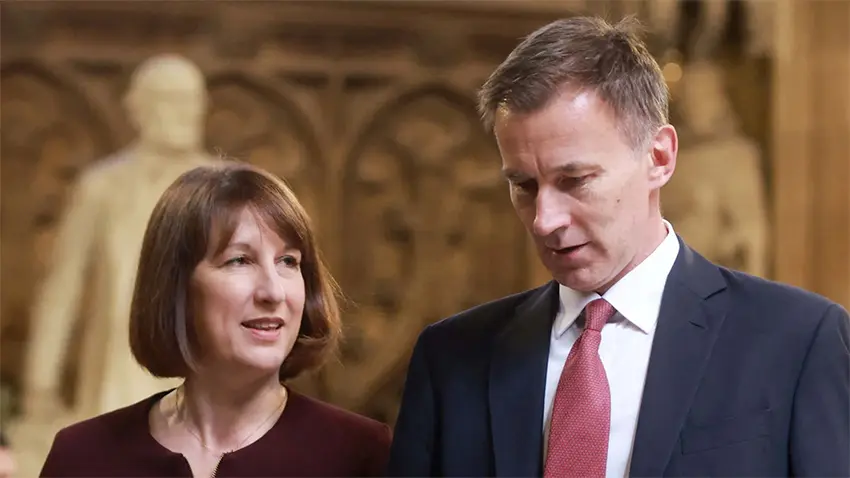Rachel Reeves has accused Jeremy Hunt of lying about the state of the public finances, intensifying a dispute with the Conservatives over claims that they left a £22bn hole in the budget.
The Chancellor alleged that her predecessor “knowingly and deliberately … lied” to MPs and the public about public spending.
“Jeremy Hunt covered up from the House of Commons and the country the true state of the public finances. He did that knowingly and deliberately,” she told Sky News. “He lied, and they lied during the election campaign about the state of the public finances.”
Hunt has rejected the claims and wrote to Simon Case, the cabinet secretary and head of the UK’s civil service, disputing the Labour government’s assessment. In his letter, Hunt demanded an “immediate answer” to “conflicting claims” that risk “bringing the civil service into disrepute.” He argued that either the spending plans signed off by senior civil servants were incorrect, or the document Reeves presented to the Commons on Monday was incorrect.
Reeves, citing a £22bn hole in the public finances, scrapped several Conservative policies on Monday, including a long-anticipated cap on social care costs, plans to build 40 hospitals, and various road projects. She also cut winter fuel payments to 10 million wealthier pensioners, reversing a policy introduced by Gordon Brown, saving £1.5bn in the next financial year.
As a result of the decision to means-test a benefit worth up to £300 for a household with at least one member aged over 80, the number of pensioners receiving the winter fuel payment will be reduced from 11.4 million to 1.5 million.
The Conservatives pointed out that while Labour was in opposition last autumn, Darren Jones, the current Chief Secretary to the Treasury, wrote to Hunt questioning whether he was planning to scrap the winter fuel allowance for some pensioners. In his letter in November, Jones said pensioners would be “deeply concerned” and “anxious that their incomes may be under threat from this government.”
It was also noted that nearly half of the shortfall cited by Reeves, £9.4bn, resulted from her decision to fully fund above-inflation public-sector pay recommendations.
Asked about the cost to settle junior doctors’ pay, the Chancellor told Times Radio: “It’s £350m – and that’s a drop in the ocean … It cost £1.7bn to our economy last year because of industrial action. It caused huge misery, pain and agony for people waiting for appointments that never happened.”
Reeves argued that public sector workers, including junior doctors, were receiving pay rises in line with the private sector and deserved to do so.
She also defended her decision to scrap the planned cap on social care costs, citing the necessity of making “incredibly difficult decisions.”
“What I inherited … is a gap between what the previous government said it was going to spend and what it was actually spending of £22bn so I’m in a position of having to make urgent decisions to restore economic stability and financial stability,” she told BBC Radio 4. “I was determined to ensure that we got a grip of these pressures.”
“When I did the audit with Treasury officials of the state of public spending and the public finances, we discovered that some of the promises that the previous government made did not have any funding attached to them. Social care was one of those things. New hospital programmes was another. Transport spending was another. The replacement of A-levels was another. Asylum was another.”
“There are lots of difficult decisions that I had to make yesterday, decisions that I didn’t want to make, decisions that I never expected to make,” Reeves said. “There are a lot of things that this new Labour government would like to do. But unless you can say where the money is going to come from, you can’t do them.”
She added that Wes Streeting would take forward plans to work with the sector to reform social care.


